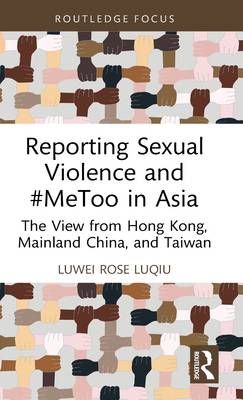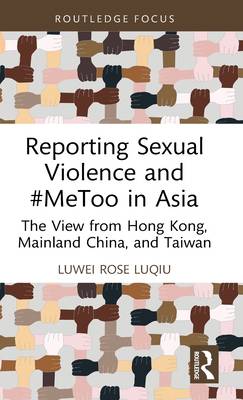
- Retrait gratuit dans votre magasin Club
- 7.000.000 titres dans notre catalogue
- Payer en toute sécurité
- Toujours un magasin près de chez vous
- Retrait gratuit dans votre magasin Club
- 7.000.0000 titres dans notre catalogue
- Payer en toute sécurité
- Toujours un magasin près de chez vous
Reporting Sexual Violence and #MeToo in Asia
The View from Hong Kong, Mainland China, and Taiwan
Luwei Rose Luqiu
102,45 €
+ 204 points
Description
This book provides a comprehensive analysis of the role of news media and social media in the propagation and treatment of the global #MeToo movement.
Spécifications
Parties prenantes
- Auteur(s) :
- Editeur:
Contenu
- Nombre de pages :
- 98
- Langue:
- Anglais
- Collection :
Caractéristiques
- EAN:
- 9781032755663
- Date de parution :
- 26-11-24
- Format:
- Livre relié
- Format numérique:
- Genaaid
- Dimensions :
- 140 mm x 216 mm
- Poids :
- 267 g

Les avis
Nous publions uniquement les avis qui respectent les conditions requises. Consultez nos conditions pour les avis.






